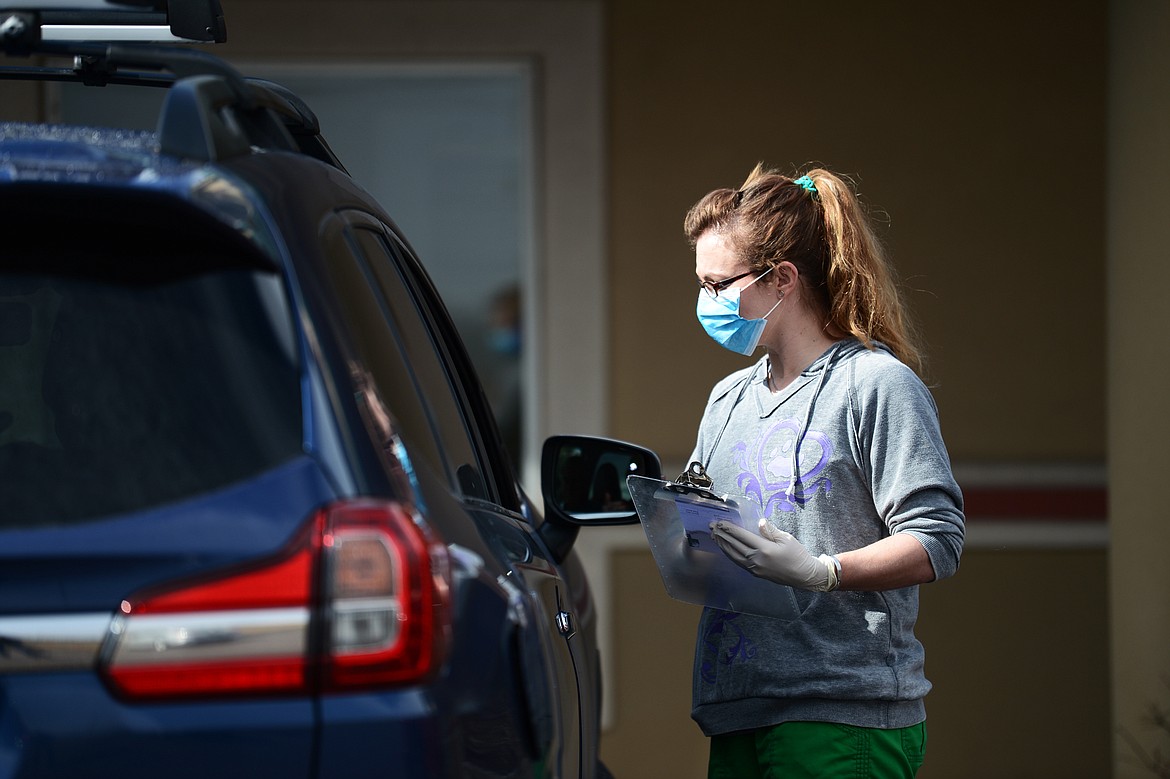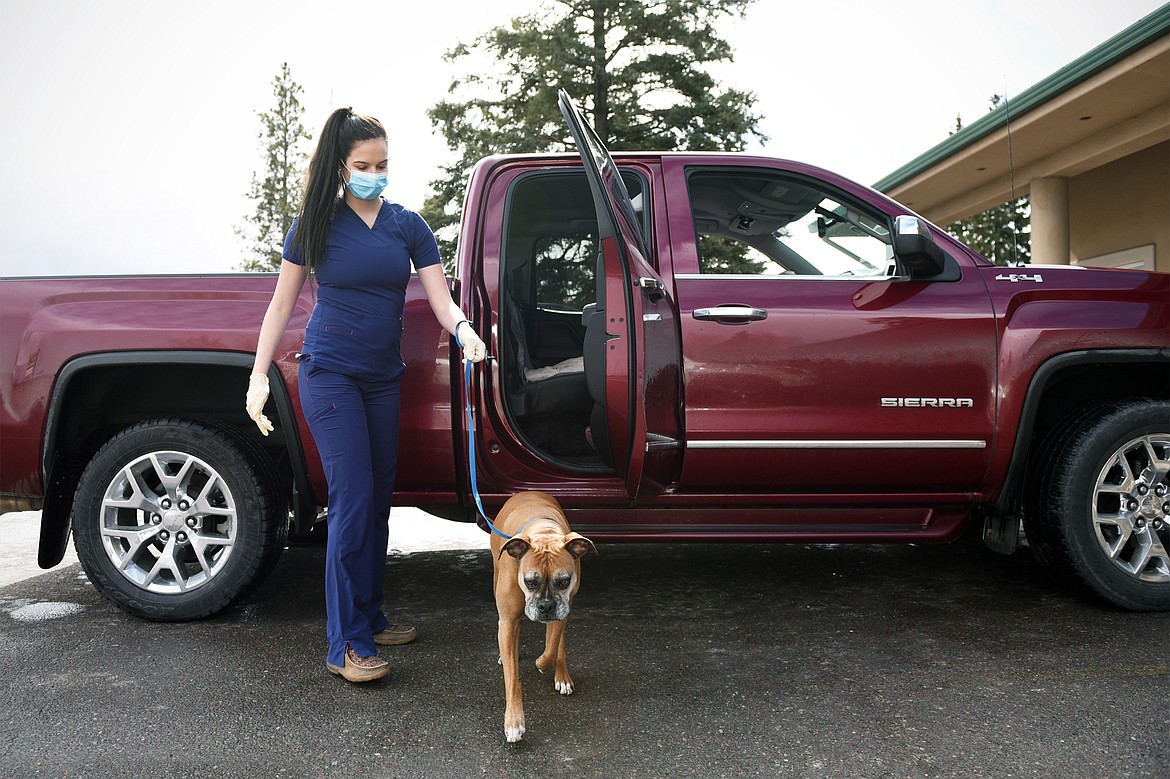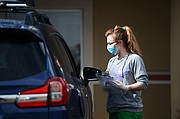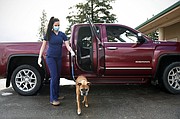Animal clinics remain open for pet emergencies
The veterinary community in the Flathead knows that even amid a virus outbreak affecting humans, the valley’s animals need treatment, too.
Although non-essential businesses have been ordered to close to prevent the spread of COVID-19, veterinary clinics and hospitals are still deemed essential, and most veterinarians are still seeing patients with medical emergencies.
“We’re here,” Barbara Calm at Calm Animal Care said. “The pets of the Flathead Valley are in good hands.”
She noted that most of the valley’s animal caregivers are still available to see pets in emergency situations, although they have implemented a number of adjustments to keep everyone safe from coronavirus.
She said on March 15, when a lot of rapid changes hit the valley, including the sudden closure of Whitefish Mountain Resort, she recalled, “I started to think about how we could most responsibly stay open, take care of our patients and keep our staff and our clients safe.”
Calm came up with a method of continuing to treat animals while minimizing contacts with their human owners. She urges clients to postpone non-essential visits, but she still performs urgent operations such as vaccinations for puppies and end-of-life care.
Clients can call ahead to discuss their pet’s treatment and use the clinic’s parking lot as a waiting room. A masked staff member will come out to collect the animal while maintaining social distancing from the owner, and the owner is asked to stay in their vehicle during the treatment except in the case of end-of-life care. Staff members will administer any care necessary and call the person waiting in the parking lot to explain their pet’s procedure, and then a masked staff member will return the pet to their car afterward.
Calm explained they are also being diligent about keeping the interior of the clinic clean by sanitizing pens and doorknobs constantly, keeping their distance from other staff members and upping their already-stringent hand-washing regimen.
Calm knows the situation is extraordinary and probably a little confusing for pets, but she said, “everybody has been cooperative, appreciative and they know we’re here to take care of their pets.”
She said the clinic has remained busy, despite the pandemic and these unusual adjustments. Many of her clients have been grateful to still be able to get care for their pets, under the circumstances. “We have a lot of elderly clients and clients who are at high-risk with underlying conditions,” she noted. “They appreciate not having to decide between taking care of their pet and keeping them safe.”
Amanda Oedekoven at Central Valley Animal Hospital echoed Calm’s sentiments. “We’re all having to be very adaptable,” she noted.
At that facility, they are also prioritizing emergency care and keeping humans out of the building except for end-of-life care. They have also started using telemedicine for some patients. “We’re doing anything we can to take care of our patients,” she stressed.
But she also recognized the overlap between the medical communities serving people and pets, and she said they are trying to conserve personal protective equipment by reusing masks in order to make sure human hospitals have the supplies they need.
“We are absolutely going to step up and help our human facilities,” Oedekoven stated.
Kevin Morrell at Alpine Animal Hospital in Whitefish has also taken on the role of stepping up and helping the overall veterinary community throughout the valley. He started an email chain for all of the veterinary caregivers to share strategies, messages of support and contingency plans in case someone at a given facility becomes sick with COVID-19.
“Everybody is having to make changes to operations,” Morrell said, and his colleagues are trying to use the virtual connection for “reaching out and supporting each other.”
“We all have similar missions,” Morrell pointed out. “That mission hasn’t changed, we just have to adjust.”
Reporter Bret Anne Serbin may be reached at bserbin@dailyinterlake.com or 758-4459.






